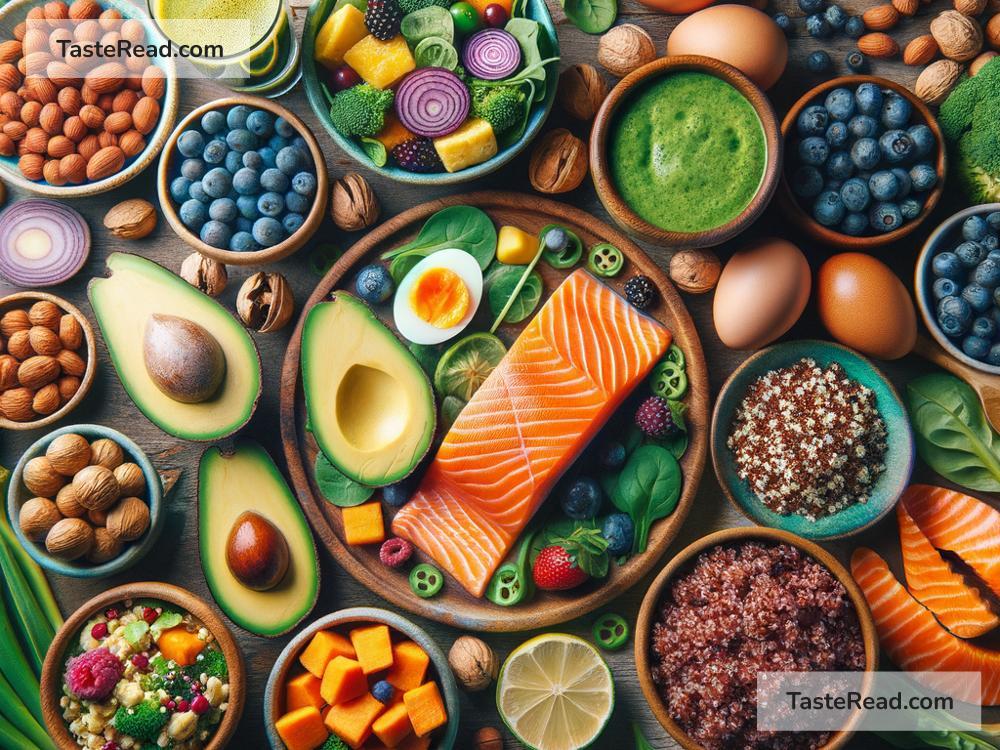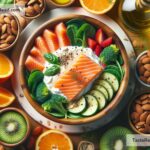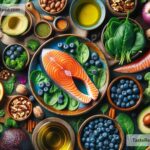Foods for Prenatal Health: What to Eat During Pregnancy
Pregnancy is an exciting time, but it also comes with many questions—especially about food. “What should I eat to help my baby grow healthy and strong?” This is one of the most common questions expectant mothers have. Eating healthy during pregnancy is important for both you and your baby. Your body needs extra nutrients, vitamins, and minerals to support your growing baby, and the right foods can make all the difference.
To make things easier, here’s a guide to some of the best foods for prenatal health. These foods are simple to find, affordable, and packed with nutrients that will help you stay healthy and give your baby the best start in life.
1. Foods Rich in Folic Acid
Folic acid (also called folate when found naturally in foods) is a super important vitamin during pregnancy. It helps prevent birth defects in the baby’s brain and spine. Doctors recommend that pregnant women get at least 400–800 micrograms of folic acid every day.
You can find folate in foods like:
– Leafy greens: Spinach, kale, and romaine lettuce are great choices.
– Citrus fruits: Oranges, grapefruits, and lemons.
– Beans and lentils: Black beans, chickpeas, and lentils are loaded with folate.
– Fortified cereals: A lot of breakfast cereals are enriched with folic acid—just check the label.
2. Foods High in Iron
Iron is essential during pregnancy because your body needs it to make extra blood for you and your baby. Iron helps carry oxygen to your baby and prevents anemia, which can make you feel tired or weak. Pair iron-rich foods with vitamin C (like oranges or strawberries) to help your body absorb the iron better.
Iron-rich foods include:
– Lean meats: Beef, chicken, and turkey are full of iron.
– Spinach: This leafy green is not only rich in folate but also packed with iron.
– Beans and lentils: These are great for iron as well as protein.
– Fortified cereals and breads: Many are enriched with iron for an easy boost.
3. Calcium-Rich Foods
Calcium is vital for your baby’s growing bones and teeth. If you don’t get enough calcium, your body will take it from your own bones, which can leave you weaker later.
Good sources of calcium include:
– Dairy products: Milk, cheese, and yogurt are excellent and easy sources of calcium.
– Leafy greens: Kale, broccoli, and collard greens are also rich in calcium.
– Fortified plant-based milk: Almond, soy, or oat milk often contains added calcium—check the label.
– Tofu: Many types of tofu are fortified with calcium.
4. Foods Containing Omega-3 Fatty Acids
Omega-3 fatty acids are essential for your baby’s brain development. They also support your heart health. Eating foods with omega-3s can be especially important during pregnancy.
Omega-3 rich foods include:
– Fatty fish: Salmon, sardines, and trout are safe and nutritious options if eaten in moderate amounts.
– Chia seeds and flaxseeds: These are plant-based sources of omega-3.
– Walnuts: A handful of walnuts are a healthy snack packed with nutrients.
– Eggs: Some eggs are labeled as omega-3 enriched—check the packaging!
5. Protein-Packed Foods
Protein is the building block of your baby’s body. It helps develop the baby’s muscles, bones, skin, and organs. Pregnant women need more protein than usual.
Protein-rich foods include:
– Lean meats: Chicken, turkey, and beef are great.
– Eggs: Eggs are an excellent source of protein and easy to prepare.
– Greek yogurt: This type of yogurt has a higher protein count than regular yogurt.
– Nuts and nut butter: Almonds, peanuts, and cashews are easy snacks full of protein.
– Lentils and beans: These plant-based options are budget-friendly and great for protein.
6. Fruits and Vegetables
Fresh fruits and veggies are loaded with vitamins, minerals, and fiber, which help you stay regular (constipation is a common pregnancy complaint). A colorful variety is best—each fruit and veggie offers different nutrients your baby needs to grow.
Some great choices include:
– Sweet potatoes: High in vitamin A, which is vital for your baby’s development.
– Carrots: Another great source of vitamin A.
– Berries: Strawberries, blueberries, and raspberries are rich in antioxidants and vitamin C.
– Bananas: Packed with potassium to help with cramps and swelling.
– Avocados: Full of healthy fats and vitamin E.
7. Hydration: Don’t Forget Water!
While food is important, staying hydrated should not be overlooked. Drinking enough water helps support your increased blood flow, reduces swelling, and keeps your skin healthy.
Aim for 8–10 glasses of water a day. If plain water feels boring, try adding slices of lemon, cucumber, or fresh berries to flavor it naturally.
Foods to Limit or Avoid
While there are many foods that are great for pregnancy, there are a few you should limit or avoid:
– Raw or undercooked fish and meat: These can contain harmful bacteria.
– High-mercury fish: Avoid fish like shark, swordfish, and tuna.
– Unpasteurized cheeses and milk: These can carry bacteria that could harm your baby.
– Excess caffeine: Limit coffee, tea, and soda to small amounts.
Conclusion
Eating a balanced diet during pregnancy doesn’t have to be complicated. Focus on whole, nutrient-rich foods like fruits, vegetables, lean proteins, healthy fats, and whole grains. Also, talk to your doctor about prenatal vitamins, which can help fill any gaps in your nutrition.
Remember, every bite counts toward building a healthy, happy baby! Take care of yourself, enjoy your meals, and celebrate this special time in your life.


